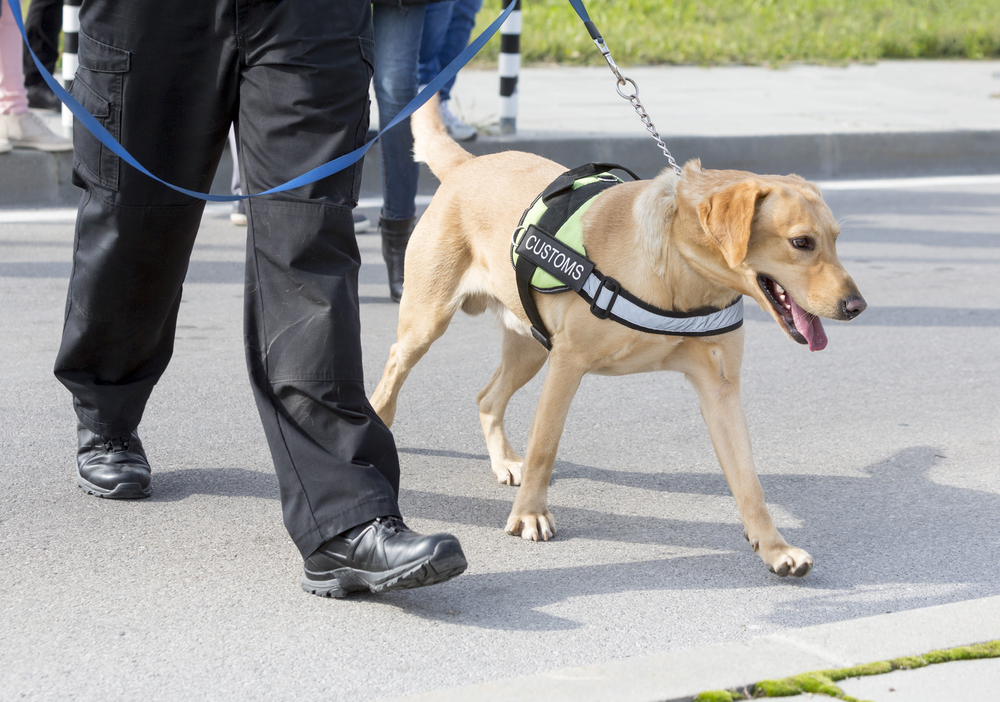
Let's talk about drug-sniffing dogs. It's truly a crime to have them giving police "probable cause" to search someone's car, house or person. Dogs sniff pretty much any and everything. Some have a sense of smell 100 times that of a human. I walk my dogs and when I do, they want to stop and sniff, sniff, sniff. They use their sense of smell to recognize other animals, other dogs, people, foods and more.
All police have to do is walk their K9 around the area in question like a car, and look for any changes in behavior. That's ridiculous. My dogs have spent time sniffing a shrub, a car tire, a fire hydrant, you name it. Dogs live in an olfactory world. While humans are mostly visual, dogs are mostly about smells.
VCA Hospital writes--
When in a new territory, a dog can sniff a tree and determine what other dogs live in the neighborhood. They can smell a visitor’s pant-leg and get a good impression of where the person lives and whether he has pets at home. When your dog exhales, the air exits through slits in the sides of his nose, and the way exhaled air comes out actually helps new smells come in. More importantly, dogs sniff continuously.
They love to sniff out everything.
The problem is police just need to say the dog "alerted" them and then it's game over. They only care about the number of cars they stop and the amount of money seized because the dog alerted them--whatever that means. There is no criteria for what an "alert" entails. A great number of police departments use civil asset forfeiture to confiscate money and other personal property found in cars after a supposed dog alert to the scent of drugs.
I remember being in line for security at the airport and there was this drug-sniffing dog and it turned out the guy had a corned beef sandwich in his bag. He got pulled out of the line and still luckily made the flight. (He was on my flight and told me what happened.)
The problem is that dogs more often than not, follow their handlers’ cues rather than their own noses. They want to please their owner more than anything. In a recent article in The New Yorker it stated, "False positives are the bugbears of canine detection, but the bigger problem is miscommunication. A leash can be like a faulty phone line. The handler thinks the dog is telling him something; the dog thinks it’s the handler’s idea. (“Dogs are pretty easy,” one trainer told me. “The problem is usually at the other end of the leash.”) Unfortunately police are well aware of how dogs can be so easily manipulated and that's a huge problem for potential asset forfeiture.
The good news is after a landmark Supreme Court decision, judges' thinking on drug dog sniffs is changing.
In one of the Roberts court's rare decisions not siding with law enforcement, the U.S. Supreme Court ruled that "police could not detain people pulled over for traffic violations in order to await the arrival of a drug-sniffing police dog." Once the traffic violation was dealt with, you were free to go. Sadly, the current state of the law could result in more dogs riding with police (that alone is so very sad for the canines) because under these rulings, the police officer who has a dog with him can get away with a quick sniffy sniff, while the officer who has to call and wait for a K9 to get there would be S. O. L.
Bottom line--dogs should not give officers "probable cause" or as some police refer to as "probable cause on four legs."




 888-571-5590
888-571-5590 1055 Wilshire Blvd Suite 1996A
Los Angeles, CA 90017
1055 Wilshire Blvd Suite 1996A
Los Angeles, CA 90017
